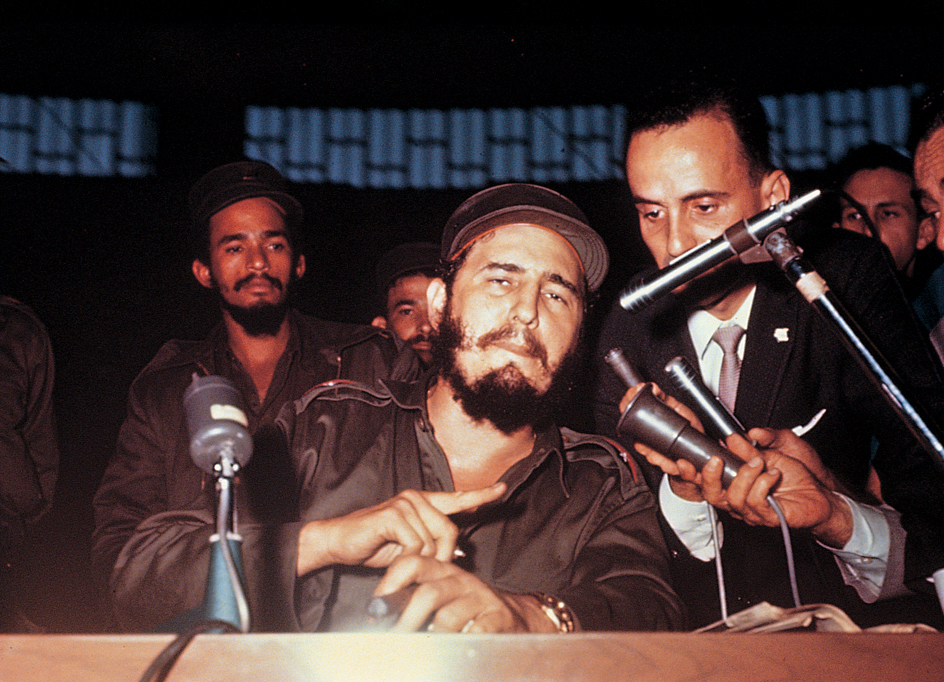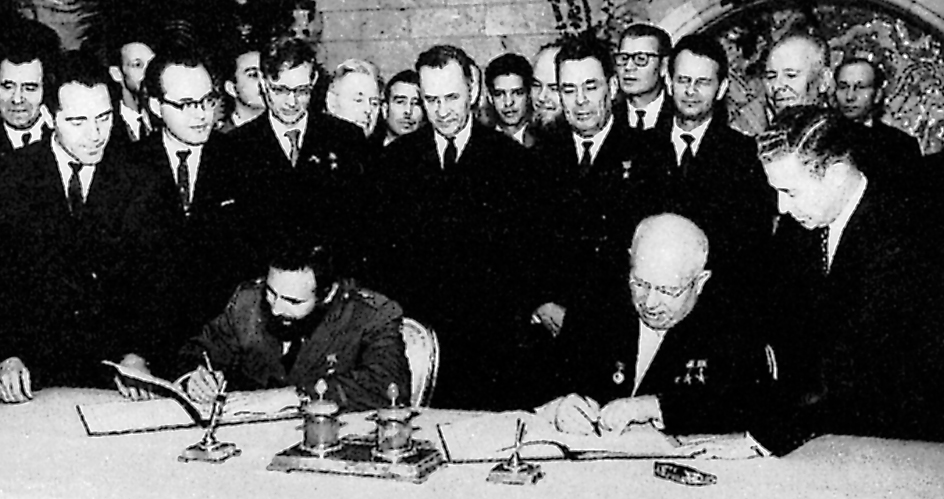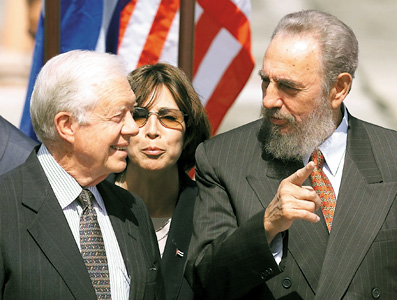Castro, Fidel, << KAS troh, fih DEHL >> (1926-2016), ruled Cuba from 1959, when he overthrew the military dictatorship of Fulgencio Batista, until 2008. Castro established a dictatorship and made Cuba the first Communist state in the Western Hemisphere. He became famous for his fiery, anti-American speeches.

Castro was born on Aug. 13, 1926, in Biran, near Mayari, Cuba. His given and family name was Fidel Castro Ruz. His father was a Spanish immigrant who owned a small plantation. Castro graduated from the University of Havana in 1950 with a law degree. Afterwards, Castro opened a law office in Havana. In 1952, he ran for election to the Cuban House of Representatives. But troops led by Batista halted the election and ended democracy in Cuba.
As a result of Batista’s actions, Castro tried to start a revolution against the Batista dictatorship. On July 26, 1953, Castro’s forces attacked the Moncada army barracks in the city of Santiago de Cuba. Castro was captured and sentenced to 15 years in prison. Batista released him in 1955, however. Castro then formed the 26th of July Movement, a group of revolutionaries named after the date of his first revolt. He then went into exile in Mexico. Castro’s forces landed in Cuba in December 1956. Many rebels were killed, and Castro and other survivors fled to the Sierra Maestra, a mountain range in southeast Cuba. People from the surrounding countryside joined the rebellion. Batista fled from Cuba on Jan. 1, 1959, and Castro took control of the government.
Loading the player...Historical footage and commentary of Fidel Castro
Castro seized property owned by Americans and other foreigners as well as Cubans. In 1960, the Castro government took over United States oil refineries in Cuba. The United States then stopped buying Cuban sugar. Castro responded by taking over all United States businesses in Cuba.

Castro supported a number of revolutionary movements in South America, Central America, and Africa. The Castro government provided improved education and health facilities for many Cubans. But the economy often was troubled. In the early 1960’s, Cuba began depending heavily on the Soviet Union for economic support. This support ended in 1991, when the Soviet Union was dissolved. Castro vowed that Cuba would remain a Communist country. However, in the early 1990’s, Cuba undertook limited reforms that loosened state control over parts of the country’s economy.

While president, Castro was closely assisted by his brother Raúl. He named Raúl as his eventual successor. In July 2006, Fidel temporarily gave control of the government to Raúl while he recovered from emergency intestinal surgery. In February 2008, Fidel announced that he would not accept reelection to the presidency by Cuban leaders later that month. Cuba’s National Assembly then elected Raúl to succeed Fidel. Fidel died on Nov. 25, 2016.
